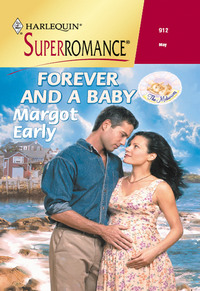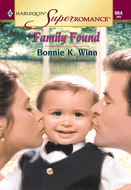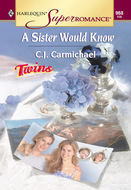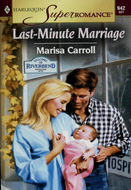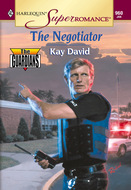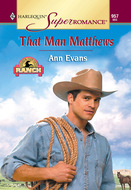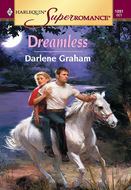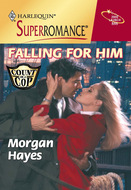Kitap dosya olarak indirilemez ancak uygulamamız üzerinden veya online olarak web sitemizden okunabilir.
Kitabı oku: «Forever And A Baby»
He wanted to thank her for being pregnant with their child
He wanted to thank her for loving that child so unconditionally. “I love you,” he said.
Dru watched his lips. Her legs shivered, her heart pounded. A prickling warmth needled her face and scalp. She hugged herself.
Ben stood closer, touched her cheeks.
“I love you,” he repeated, his body almost brushing hers, ready to catch her if she fell into another fearful trance—a memory of their past, in the desert. Ready to catch her whenever she fell, or at least help her up. “Will you marry me?” he asked.
Dru saw the man across from her, and on the thought that she’d never love another, her eyes filled.
She’d believed that about Omar, too. Her husband. Now dead.
But Ben Hall was this baby’s father—and would be her husband. Soon.
Dear Reader,
I’m happy to introduce the fourth book in my continuing Harlequin Superromance series, THE MIDWIVES. While the characters from You Were on My Mind, Talking About My Baby and There Is a Season enjoy the love they’ve found, we meet two new midwives, best friends Dru and Keziah.
Keziah attends home births on the island of Nantucket. But Dru, a certified nurse midwife, was torn from her vocation years ago by family notoriety and her marriage to a renowned financier. Just as it seems all her dreams will be lost, her husband’s death brings her a chance at love with childhood friend Ben Hall, and much more. Finally Dru has the chance to regain herself—and to bear a child of her own.
I hope you enjoy this story and that you’ll be eager to learn what happens between Keziah and Dru’s twin, Tristan, in The Story Father. And what happened between them in the past.
Thank you so much for reading my books.
Sincerely,
Margot Early
Books by Margot Early
HARLEQUIN SUPERROMANCE
625—THE THIRD CHRISTMAS
668—THE KEEPER
694—WAITING FOR YOU
711—MR. FAMILY
724—NICK’S KIND OF WOMAN
743—THE TRUTH ABOUT COWBOYS
766—WHO’S AFRAID OF THE MISTLETOE
802—YOU WERE ON MY MIND (THE MIDWIVES)
855—TALKING ABOUT MY BABY (THE MIDWIVES)
878—THERE IS A SEASON (THE MIDWIVES)
Forever and a Baby
Margot Early
ACKNOWLEDGMENTS
The nature of this book, its landscapes and seascapes, its peoples and their backgrounds, dictated two things. One is that I would do extensive research; the second is that I would both take artistic license and make some mistakes (which are two different things, though they can look the same). The following people generously gave of their time:
Marina Alzugaray, MS, ARNP, CNM, Cathy Hartt, CNM, and Bill Dwelley, MS, LM, WEMT-I, thoroughly answered extensive questions about the art, science and business of midwifery.
David M. Good, M.D., P.C., thoughtfully addressed the mental health questions I asked. Without his help, this book would not have been written.
My sister Joan Early Farrell, Matt Hunder and James M. Early, my father, answered questions about fishing, boating and sailing. My family has always speedily assisted when I’ve needed help with my books.
Deb Kidwell, owner and breeder of the Azawakh of Kel Simoon, told me about these noble sighthounds and helped me name both of the heroine’s dogs, always increasing my appreciation for this beautiful and unusual breed.
Julie Elliott allowed me to use invaluable information for sections of the book having to do with belly dancing. Nearly all of my information on belly-dancing, including song translations, came from her rich and fascinating Web site, The Art of Middle Eastern Dance.
Finally, this book required the use of numerous reference texts. They include: Serpent of the Nile by Wendy Buonaventura, Return of the Tribal by Rufus C. Camphausen, The Hungry Ocean by Linda Greenlaw, Nantucket: Seasons on the Island by Cary Hazlegrove, The Ocean Almanac by Robert Hendrickson, The Perfect Storm by Sebastian Junger, Ethnic Dress by Frances Kennet, Sahara Unveiled by William Langewiesche, Veiled Sentiment and Writing Women’s Worlds by Lila Abu-Lughod, Nantucket Gardens and Houses by Taylor Lewis and Virginia Scott Heard, Lonely Planet Travel Guides, the mystery novels of Francine Mathews, Black Tents of Arabia by Carl R. Rasway, Dangerous Places and Come Back Alive by Robert Young Pelton, Arabian Sands by Wilfred Thesiger. Internet resources were too numerous to mention.
CONTENTS
PROLOGUE
CHAPTER ONE
CHAPTER TWO
CHAPTER THREE
CHAPTER FOUR
CHAPTER FIVE
CHAPTER SIX
CHAPTER SEVEN
CHAPTER EIGHT
CHAPTER NINE
CHAPTER TEN
CHAPTER ELEVEN
CHAPTER TWELVE
PROLOGUE
Orange Street
Nantucket Island
“WE NEVER KNOW OUR ANCESTORS because it’s their prerogative to lie to us.” Dru said this to me while standing beneath the oldest portraits her family owns, full-size likenesses of a thirty-nine-year-old whaling captain and the fourteen-year-old girl he brought back from Morocco. The girl wore long gossamer pants and a floor-length gown, with a belt of silver coins at her waist, coins everywhere but at her throat. There, an elaborate necklace of hammered silver. Cuffs of silver covered her wrists, and bangles of silver and dyed leather interrupted her forearms, while a crown dripping with more coins swirled round her head. From the crown fell hair as thick as Dru’s but hennaed red. Henna stained her skin, as well, in the intricate designs Dru called mehndi. The shade beneath, her own, was luminescent. The artist had not altered it. It was the color sand takes on in the shade. Weak coffee with a spoon of skim milk. Slavery had left Nantucket long before 1842. Nudar was Captain Haverford’s wife. I found her exquisite. They were my ancestors, too.
“Imagine it, Ben,” Dru said. “Imagine being forced into marriage with a man of a different color, a different culture, a different country, twenty-five years older than you—”
She stopped.
Her eyes fell. Her back to me, her thick black hair caught on the hood of her sweatshirt, she lifted a riqq, a small tambourine, from the seat of the grand piano. Like mehndi, this instrument had different names in different places. She played, and I heard the desert sing and smelled indigo on skin. The music stopped. “But perhaps she loved him.”
Perhaps she did.
Ancestors, as she said, can and do lie. Which alters things. Dru has said it this way. “Our family is large and interconnected. We have married cousins and stayed on this island. We like each other.”
Like the Bedouin, I thought when she said it. The Bedouin would say that it is good to marry cousins, just as one must know one’s lineage, or how can one have a name, the kind of name that comes from Allah? A name that names the person by naming the loved ones. There is a debt and a weight on this name, and there is a duty to it, a duty to one’s line.
I know this because I hadn’t stayed on Nantucket, nor had my father, Robert Hall. The desert is in my blood.
One must know one’s lineage.
Ancestors can and do lie. And they may omit…falls.
A fall can change the course of history. Not just the fall of Rome or a fall in the Dow Jones, but a human being falling down.
For instance, my grandmother’s fall, as told to me by the father who raised me, Robert Hall. Not an omission. Something he chose to tell.
In the year of her accident, 1947, Faith Hall was Nantucket’s only midwife. Dad was thirteen that year. His father, Ben, for whom I’m named, was a veteran of the recent war and a Nantucket scalloper. The family lived in a fishing shack in ’Sconset, the cottage my father never sold and where I sometimes came from Africa to hammer and saw and keep the building from the sea, while the Atlantic steals prime real estate by inches. On the day of my grandmother’s fall, it had rained, and my father came inside with muddy feet, and his mother scolded him to clean the floor, and he did. She went outside to empty dishwater in her garden, and mud from his feet had tracked the steps, as well. My father heard her body strike the shack’s flimsy siding. She had fallen head-first four feet and broken her neck. Even before the funeral, her mother came for the year-old baby, Dad’s little sister, to raise her in her dark home on India Street in town. The men—Dad and his adopted brother and their father—harvested scallops.
Dad told me of another fall, one that happened earlier, a plane falling from the sky over the desert and one crew member escaping, floating to the ground with his precious silk. The soldier had hiked, lost until he met a Bedouin boy paused in the shade of a camel. The camp of twelve families had been slaughtered by tanks. Bloating camel carcasses and dead salukis lay near the collapsed tents. The soldier covered his nose and mouth with his bomber jacket to keep from vomiting at the stench.
Nonetheless, the boy greeted my grandfather in a tribal dialect and rushed to a demolished tent. He made coffee, insisted that my grandfather sit against a camel saddle, and behaved as though the carnage did not exist. When his guest would drink no more, the child showed him his father’s body, and it was the body of the sheikh. Working till dusk, they buried each person, seventy-one bodies, in a shallow grave in the sand, placing stones at the head and feet, leaving any intact garments on the graves for the less fortunate. Next morning at dawn, they saddled the camel. The boy knew what they would need and took the little he could of his family’s wealth. Before he left the graves of his loved ones, he bowed against the sand and prayed.
He and the American soldier crossed the desert, walking northwest to the coast, milking the camel to quench their thirst. Many times, the boy spoke his name and the name of his father and grandfather and his great-grandfather and his tribe. It was his entire name, a proud name. My grandfather agreed to call him Omar and sent the eight-year-old Bedouin ahead of him to Nantucket Island to become his second son, although the name Omar means “first son.” When my grandfather came home from the war, it was the dark boy he lifted in his arms and held as he embraced the others. They became a family of five. My fisherman grandfather, my midwife grandmother, Robert, Omar, and, briefly, baby Mary Hall. Then, my grandmother fell.
When my father first told me these stories, I had played with dominoes but still didn’t understand the nature of falls. I’d learned that midwives helped women have babies, which meant they were like doctors or nurses—not partially your wife and partially mine, as the name implied. I never guessed the part these falls—a soldier falling from the sky, his wife falling on her head—had played in my existence. Or that other falls in my life would so shape my destiny.
That I could be one of the fallen.
There are many ways to fall.
WHEN I MET with my father’s brother, Omar Hall, in Nantucket in early March of the year of his death, I had not seen his wife, Dru, for two decades. At that time, I had not heard her remark about the lies ancestors tell. My father lay dead nine weeks and three days.
Omar—he never encouraged “uncle”—and I spoke in the garden behind his home, the Federal-Greek Revival on Orange Street. Spruce and pine, the ivy-draped fence, the waterfall of unawakened climbing roses, all edged the long garden with its terraces, its beds with the green tips of bulb leaves emerging, other blooms dormant around the wintered lawn. We had privacy, the kind you can buy. Or he could.
His man, Sergio, had led me through the house to the garden, where Omar himself had held back the two long-legged dogs, gazelle-chasing desert sighthounds, one sand-colored with white stockings and chest, the other blue brindle. I knew both. I’d brought them from Mali, for Omar’s wedding gift to Dru.
While the hounds galloped down the long, deep yard, leaping and floating in mesmerizing fairy bounds, Omar brought me a beer and glass, offered me food. I’ve accepted coffee from faces like his in desert tents and in mud and stone houses of powder-puff colors. In him, the Bedouins’ sacred respect for a guest was warmth, a face that lit up as though this was the Libyan Sahara. Instead of an island soggy as a whaler’s death.
This was his hospitality. Years earlier, Omar had bought a mansion on the shore near Broad Point, hoping all his family and extended family, distant cousins included, would come to live with him. When he asked one of those distant cousins to marry him, when he asked Dru, she came—the only one. He and Dru sold the mansion and bought this house, two doors from her childhood home, with a yard for their dogs.
Omar and I stretched out our legs, half-turned from his round iron table, mismatched with plastic chairs. I wore my grandfather’s World War II bomber jacket, which Omar had presented to me on a visit to Cambridge when I was a teenager and old enough to notice my own father’s lip curling over the gift. But then, Robert Hall had relaxed and said, Looks good on you, Ben. And you’re named for my father. It should be yours. So it was always his and mine, never Omar’s, never the Bedouin boy’s.
In his herringbone overcoat, Omar scooted his chair closer to the table. He blushed. His smile showed embarrassment and pleasure. “My wife has a mission this summer, Ben. She is to search for a man whose child she would like to bear and arrange a tryst with him, for the purpose of conceiving a child who will be ours.”
The paler dog, Femi, circled the brickwork haughtily, stepping like a cat.
Arrange a tryst…Purpose of conceiving…His words caused a wound. No, something more complex.
The financier’s eyes curved, wrinkles kind. “Good. You’re not surprised.”
“I’m a journalist. I’m surprised.”
He laughed.
I didn’t.
The encapsulated Omar Hall: Son of a Bedouin sheikh, brought to America after the death of his family, adopted by my grandparents, their own deaths five years apart. Establishment in investments, speculation in hedge funds, marriage to distant cousin Dru Haverford, not of the Haverfords, also cousins, but of quiet poverty, they said, and young and beautiful. A midwife. A serious mountain-biking accident—his—on their honeymoon. During his marriage, Omar had become a global philanthropist, dropping a hundred million here, a hundred million there, every year.
Dark olive skin like a fine grade of sandpaper folded over the rigid white collar of his shirt. His eyes were black as mine, eyes like my ancestor Nudar’s. “Tell me why you’re surprised,” he said. “Let’s talk.”
Talk? “You can start.”
“Do you know my age, Ben?”
“Sixty-six.” According to Fortune. I reached for my glass. Talk.
“Dru is thirty-one. What do you suppose our marriage is like?”
The beer went down. A breeze brought a taste of scallops and salt water and brine. Everything wet, the gray air soaked in the sea. The damp suffocated me. So much water. The dogs collapsed at a distance. I still saw an eleven-year-old Dru at a Nubian oasis, water slipping through her hands beneath her ghost eyes. She was the one who’d been seized by the jinn, and the women danced to placate the demon. The rest of us went on, in our own ways. I found a scorpion. Tristan found a tribe. Skye found an Australian backpacker.
“Every marriage is different,” I said. Even in the desert. The nomadic Bedouin, occasionally with an extra wife. The Tuareg and their brides. An anthropologist and a minister’s daughter. A lone American journalist in a hundred-and-thirty-degree sun…
Omar smiled. “You’re diplomatic and wise. Dru and I are happy.” A pause—because of dissembling or curiosity? A pause that made me wonder which. “How are you?”
“Well.”
Omar’s forehead formed crevasses. He looked the same on the cover of Money. Then the lines smoothed. “Death is hard.” Difficult silence. “I still remember your grandfather’s death. We should all have died that day. Mixed seas. Bob and I couldn’t find him. Can you imagine making the decision to bring in the catch and the boat? And on another day, to go out again?”
He and Dru shared this; her father had also died at sea. But I already knew what Omar told me. My grandfather’s assets were divided equally between his two sons, the absent Mary ignored. Omar sold the boat. My father kept the house. They both went to college. Omar studied finance, philosophy and religion, went into investments. Robert—Bob—became an anthropologist and left for the Sahara, later traveling with his wife and baby, looking always, I think, for the father he’d lost. The father who’d fallen from the sky into the desert and was never seen again. Not the veteran who adopted a Bedouin boy and gave him to his family. I wanted to know about Omar’s other father, the sheikh. More than his name, which had been enough for my father to find some of Omar’s relatives who had survived the war, for Omar to meet them. “You lost two fathers.” The words hollowed the air, like a prophecy.
“Yes.” Omar closed his eyes. “My father.” My only father, his voice said.
I forgave him. Almost. For things of which we’d never spoken. And that I fantasized we would.
“I remember very little. I dug myself into the sand. A tank passed over me.” He shook his head. “The next thing I knew, your grandfather and I were in Tripoli, with the possessions I’d salvaged. He was good to me. And your father was a good brother. Bob asked me things. He wanted to know everything. About the desert.”
The blue brindle, Ehder, brushed my leg. Did he know my scent or remember the border post where no one loved the Tuareg or their puppies? I petted him, dreaming Niger and the last days of my father, Robert Hall. He’d said, I’m dying. It won’t be long. Inshallah. White filled the crevices in his sun-beaten skin. His cataract-ridden eyes, blue, red-lined, had sunk deep. He lay in the hot shade of his tent. He’d rejected the mud walls of the house where he kept his research materials. Sand had begun to blow. Heaping outside. It could bury a tent or a village. He was bleeding from the rectum again. Diarrhea. Vomiting. He wouldn’t leave this place, and he told me he had cancer, had known for seventeen months. I was a sorry parent, he’d said. I’d said, You’re a great man. I love you. He’d said, Does a good son always lie? Is it the job of a child to make the parent great? I recited the Koran to him in the language in which I’d learned it. The men came to talk with him. Magicians came. I had brought morphine, and an American trekker had more. I sat with him five days, reciting the Koran until dehydration won and he lay with his lips gaping and eyes already shut.
I considered the nature of fraud. I had lived among the devout and among the Tuareg—refugees, caravan traders, pastoralists, the descendants of nomadic bandits, a people whose Arab name means “abandoned by God.” My father had chosen them, the traditional enemies of the Bedouin, had finally chosen their independent faith and untouchable spirit. He had fought the painful war for their mountain territory. Omar called himself an atheist. But the rest of my family played hard at their connection to the desert world. The women and their singing and dancing. My father in his pain had said, Inshallah. Allah willing. He had believed that our days are numbered by God, and that nothing can change that plan. He had worn an ancient silver cross, a bowed and beautiful thing. The proof missionaries gave that the Tuareg in their indigo robes had been Christian once. I’d asked Tanelher about it. She’d laughed, and I’d smiled, wishing I were of her tribe, a masked blue man of the desert. Instead of seen and vulnerable—to spirits and the scrutiny of a beautiful woman.
Who are these people, the Tuareg? A photographic negative of the Bedouin? another journalist once asked me. The Tuareg men mask themselves, while the women veil only against the elements. Descent is matrilineal, traditionally. They and the Bedouin have settled on opposite edges of the vast Sahara. But the analogy of a photographic negative fails, limited by its two dimensions. I know because I grew up wandering in the shadow of an anthropologist, and as a man I’ve tried to know—and rescue, in arrogance—the Tuareg and Bedouin and others.
Maybe I, too, seek the father I lost.
“Ben.” Omar leaned closer over the cold wrought-iron tabletop. Perhaps to take my mind off Dad. He blushed again, another blushing smile. “I want you to follow Dru. She’s…indifferent to her safety. And has some unwise notions of where to look for—our man. I want you to protect her. But don’t let her know.”
Dru. I’d forgotten this. Omar’s plan for a baby.
This Tribe
LONG AGO, a New Bedford whaling captain named Haverford left his town and settled on the island of Nantucket, where he married and had children who had children. From Nantucket’s harbor, he sailed his ship, and his descendants sailed their ships. One of these men was Tobias Haverford.
In the winter of 1840, a storm blew Tobias’s ship to the shores of Morocco, where he took on a passenger, a girl named Nudar. He brought her home to Nantucket and married her.
Nudar was a Muslim. That much is known. Her husband allowed her to practice her faith, and she kept many customs of her culture, as well. She passed these traditions to her daughter, who passed them to her daughter, and so on. Her son’s life was the sea. His descendants were Haverfords. His daughters, too, learned the ways of Nudar. In the privacy of their rooms, they sang and danced in a manner alien to Puritan New England. Their tambourines and single-string boxes and ululating zaghareets could be heard on the street. This eccentricity they passed to their daughters as well.
Being Americans, these women became dissatisfied with what was passed down and added to it with the dancing and singing of other cultures. By the year 2000, no one was certain where Nudar had really come from or who her people were.
But these are members of her tribe, by birth or marriage:
My grandmother, Faith Hall, who fell from the stoop, and her husband, Ben Hall, who fell from a plane. Their son, my father, Robert Hall, who died in the desert.
Their adopted son, Omar Hall, who fell. Who fell.
Their daughter, Mary Hall, who embraced the traditions of Nudar and other women who sing and dance in the ways called raqs sharqi, danse du ventre, Middle Eastern dance, Oriental dance. Belly dance.
Mary’s husband, Daniel Mayhew, her brother Omar’s attorney and an Islander.
Their daughter, Keziah Mayhew, a midwife who teaches Nudar’s dances to pregnant women. I always see Keziah not in the ethnic dresses she favors but in a Puritan bonnet and dress, the costume of a pilgrim, because she has the stare of a New England winter. People say our eyes are alike—and came from Nudar.
Keziah has a daughter, and her name is Nudar. She is eleven and blond for a Hall or a Mayhew. Like my grandfather and Dru’s father, Keziah’s man died at sea. Only Keziah knows his story.
There are Haverfords, too.
Wealthy Haverford descendants in California, in publishing. Many cousins. Their own papers carried the story, eight or nine years ago, of the death of heiress Skye Haverford Blade. Skye had married world-renowned marine explorer, David Blade, and borne his child, Christian. She died after falling from the bow of his ship. He remarried, and his wife Jean bore two children at sea. They are of our tribe.
Joanna Oliver left her Charleston home at eighteen and traveled to New York to become an actress. She was discovered, first by Andy Warhol, then, while dancing with the Velvet Underground at the Boston Tea Party, by Nantucket scalloper Turk Haverford. Joanna was the family’s most exotic bride since Nudar, even to her hair that was the color of bleached shells. She thawed even the frozen hearts of the Nantucket Lightship Basket Historical Association. Turk Haverford lost his ship on Georges Bank seventeen years ago. Four men died with him. I imagined the ways a ship can sink, how the keel or bow can rise. It’s possible he fell.
He left fourteen-year-old twins.
One, named Tristan, had once fallen into the wrong hands. He grew into a fisherman like his father, and his fisherman wife died at sea, falling on a line, impaled by a hook. Their daughter, Keri, survives.
Tristan’s twin is a woman named Dru, who once—or twice—fell in love. She can fall no farther.
She carries the egg and the sperm of this line.
Of the tribe of Haverford and the tribe of Nudar.
Ücretsiz ön izlemeyi tamamladınız.

